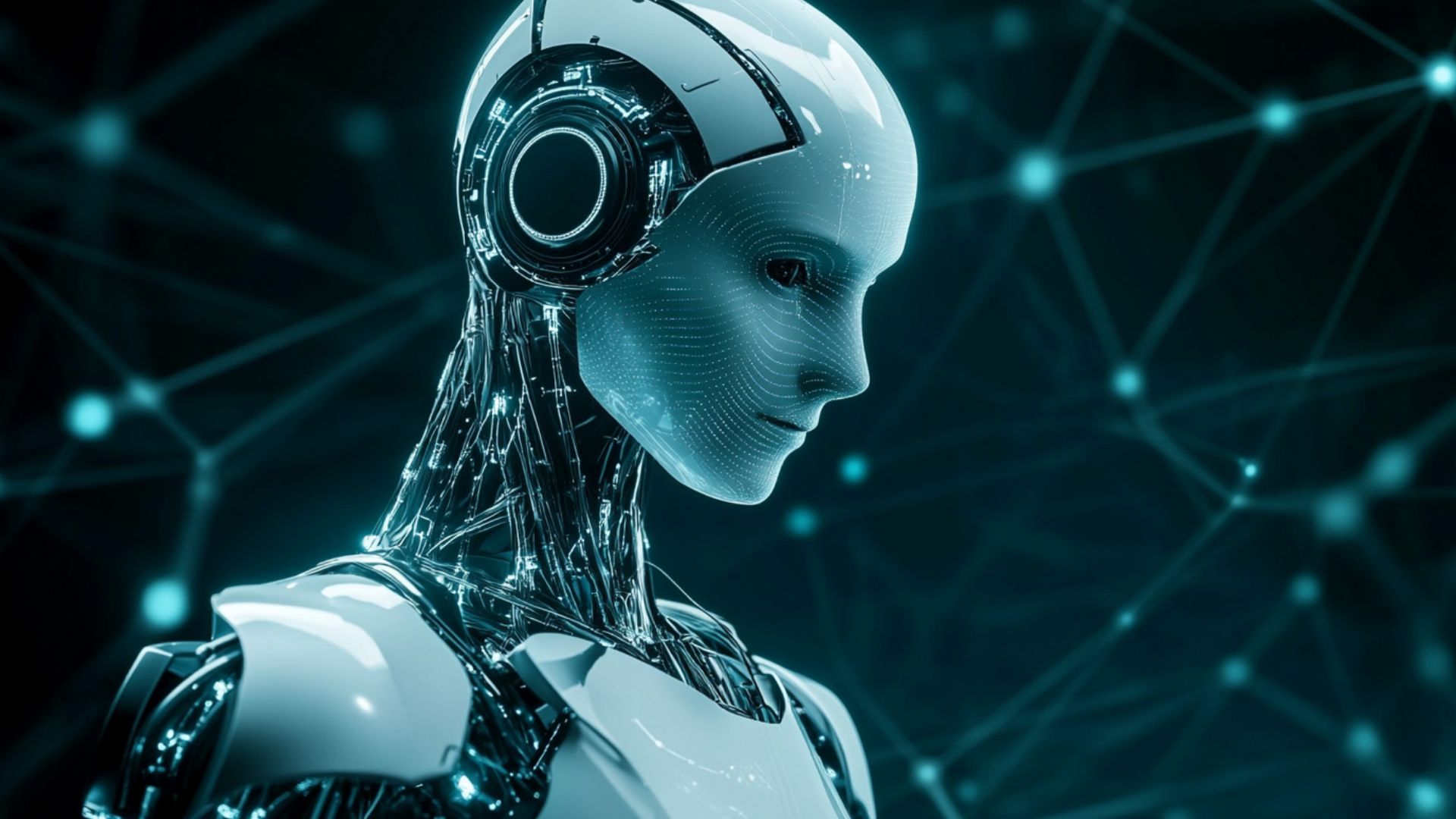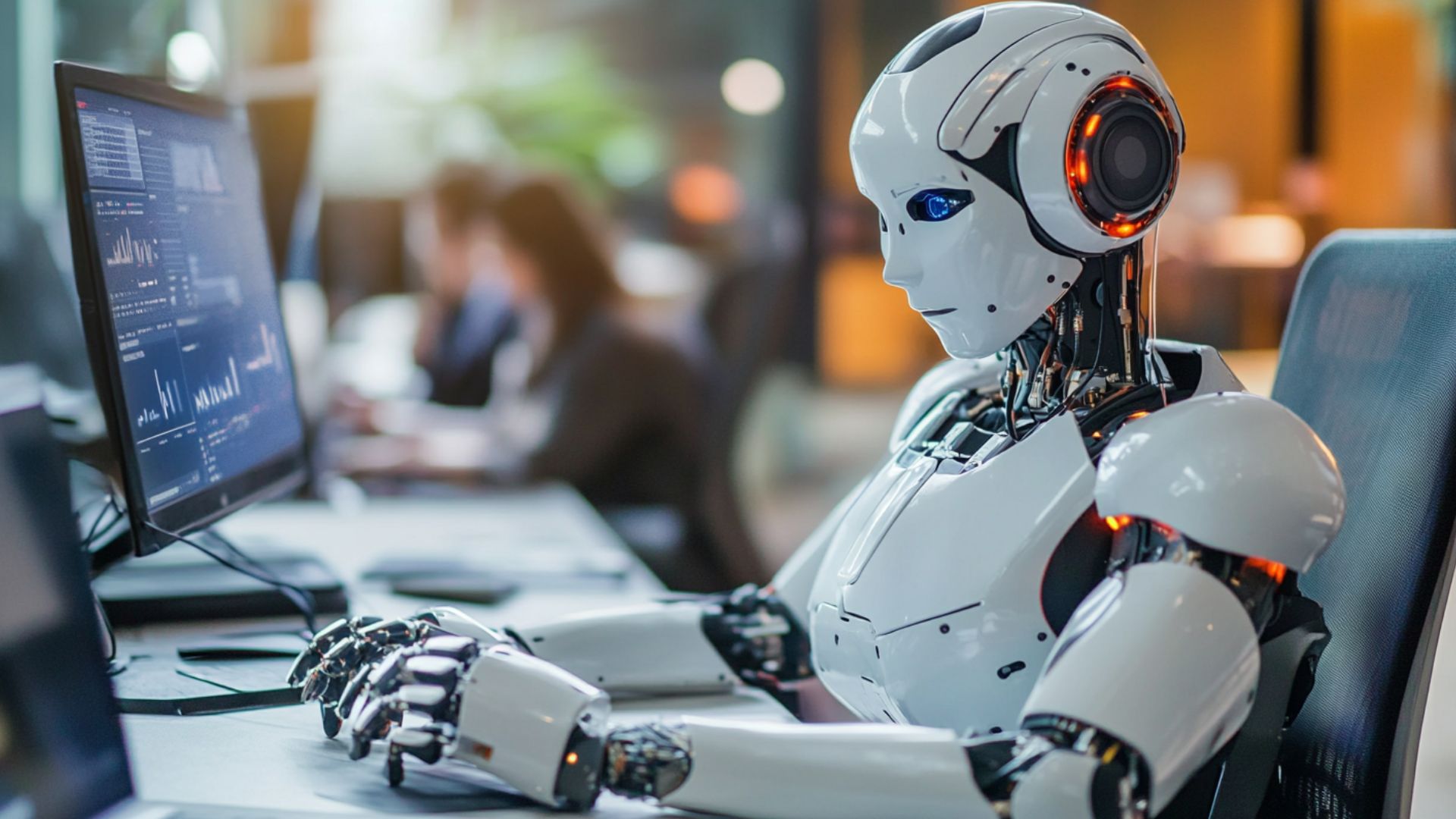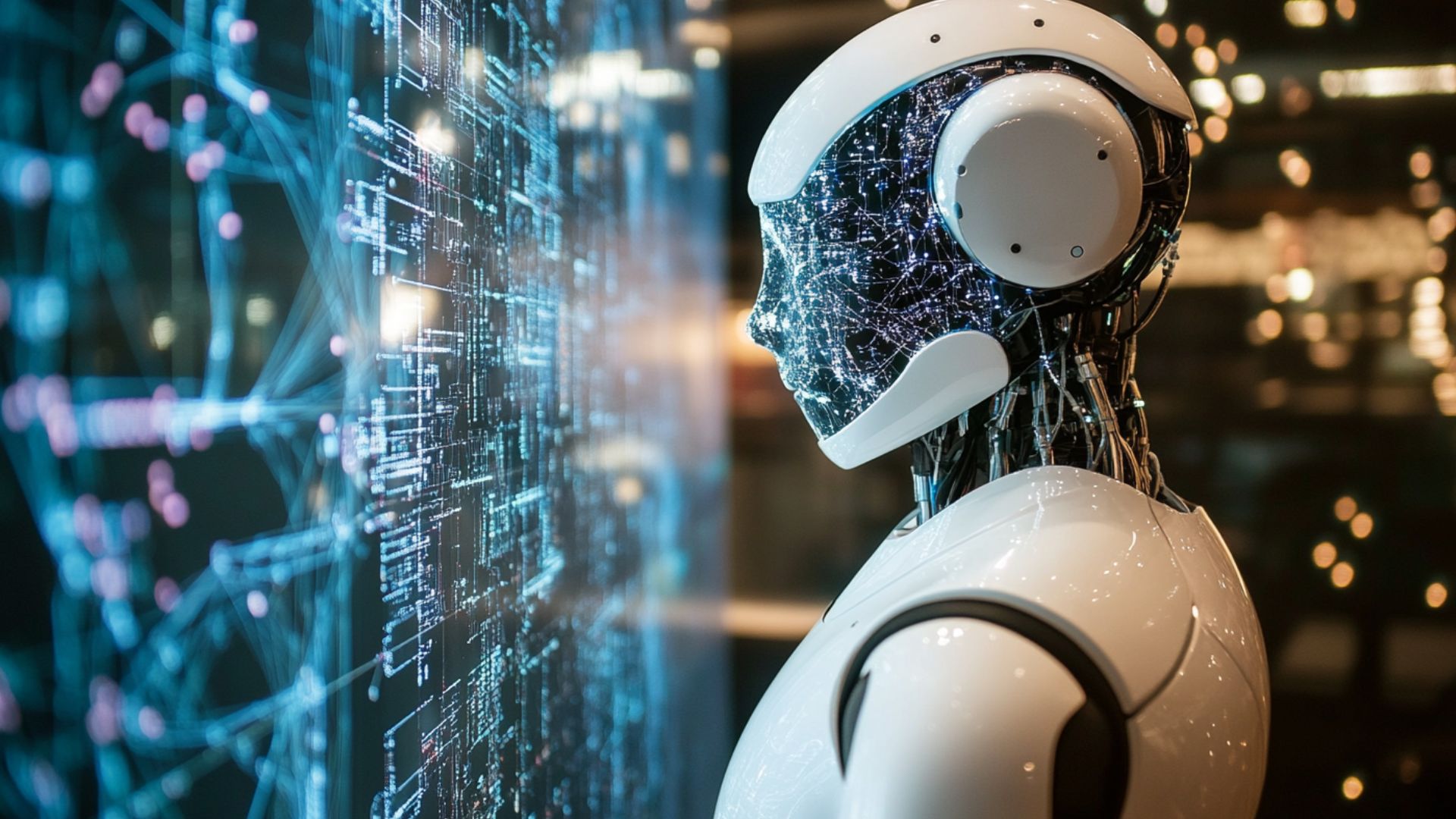How AI is Revolutionizing the Beauty Industry: Virtual Advisors and Salon Services

Robotic technologies are rapidly transforming all industries. And today, AI technology has even reached the beauty field! The latest innovations revolutionize how services are delivered and personalized. Clients can now receive customized guidance. This has happened with the advent of virtual tools that influence skin care, makeup and hair care through artificial intelligence platforms. These tools analyze:
- Individual preferences
- Skin types
- Seasonal trends
And then, they offer product suggestions catering to each client’s unique needs. Artificial intelligence (AI) streamlines salon operations. It automates scheduling and managing inventories.
Beauty AI continues to evolve and set a new standard for innovation and convenience in the beauty sector. AI offers a seamless blend of technology and personalized care. It benefits customers and businesses.
Understanding AI in the Beauty Industry
Beauty AI is an umbrella term that encompasses the latest technologies to enhance various aspects of the beauty industry. This encompasses advanced technologies. They are machine learning, facial recognition, and data analytics. Such technologies help to personalize and improve beauty services. In particular, AI in beauty is crucial in understanding client preferences. It automates salon operations. Robotic technologies also provide tailored solutions. One of the most prominent tools is the robotic beauty advisor. It offers customized and efficient recommendations. They are based on user data. They ensure a personalized experience.
These are the critical applications of AI. These include:
- Virtual consultations: AI enables customers to try on makeup, hairstyles, or skincare products. They may do it through augmented reality (AR) tools. This allows clients to visualize different looks before making a purchase.
- Personalized product recommendations: AI systems are based on customer profiles. They analyze skin conditions, lifestyle, and preferences. Such systems recommend products that best suit the individual’s needs.
- Automated salon operations: AI assists beauty salons. It automates appointment scheduling, inventory management, and client feedback. This improves operational efficiency and client satisfaction.
- Virtual beauty advisor: These AI-driven tools provide personalized skincare, makeup, and hair care recommendations. They analyze skin type, tone, and personal preferences. They guide clients through product selections without the need for in-person consultations.
- Skin analysis and diagnostics: Some AI-powered systems can analyze photos of a user’s skin. They identify acne, wrinkles, or dryness. Such systems suggest treatments accordingly.
AI in salons creates a more personalized and tech-driven experience. This creates an ideal experience for both clients and professionals through these innovations.
Benefits of AI Virtual Advisors
Salon AI virtual advisors offer many benefits. They are revolutionizing client experiences in the salon industry. These include:
- Enhanced Client Engagement: A virtual advisor uses advanced algorithms. They analyze customer preferences, skin type, and beauty goals. Such advisors deliver personalized recommendations for skincare, makeup, and haircare. This tailored approach fosters deeper engagement. It makes clients feel understood and valued. With the help of AI, clients receive advice. It is specifically suited to their unique needs. Such advice leads to higher satisfaction and loyalty.
- Accessibility: One of the most significant advantages of a virtual beauty advisor is its 24/7 availability. Customers no longer need to wait for a store to open or book an in-person consultation. Instead, they can access expert beauty advice anytime and anywhere. It happens through their smartphones or computers. This convenience makes beauty care more accessible to a broader audience.
- Automated Services in Salons: Beyond product recommendations, AI is also used in salons. They have systems like the salon virtual receptionist. It helps manage appointments, client communication, and inquiries. This enhances the overall customer experience. AI streamlining operations and ensuring timely service.
These innovations in AI are reshaping how customers interact with beauty brands. They make personalized beauty care more accessible and efficient.
Case Studies of AI in Action
Several brands and salons have successfully integrated beauty AI technologies. They enhance their services and boost customer satisfaction. Here are some case studies:
- L’Oréal’s AI beauties: This company has developed a virtual skincare service. It uses salon AI to analyze skin conditions through photos. Such services provide tailored product recommendations. This innovation has improved client engagement. It offers personalized solutions, increasing sales and brand loyalty. L'Oréal's AI beauty platform allows users to access expert advice anytime. It makes skincare more accessible and convenient.
- Sephora’s Virtual Artist: The company implemented an AI tool called Virtual Artist. It lets customers virtually try on makeup using augmented reality. This feature enhances the shopping experience. It allows users to see how different products look on them before purchasing. AI boosts confidence and increases conversion rates. The result improves client satisfaction. It also leads to higher online sales.
- ModiFace technology in salons: Many salons have adopted ModiFace. This is an AI tool that provides virtual makeovers. Clients can experiment with different hair colors and makeup looks. They may do it before committing to a style. It results in higher satisfaction and a more streamlined service process.
These AI applications, like virtual salon receptionists and others, are crucial. They have significantly enhanced client experiences. They lead to greater satisfaction, increased sales, and improved business performance.
Transforming Salon Services with AI

AI is transforming salons' operations and enhancing client experiences. It also optimizes backend processes. Salons can streamline client interactions and operational efficiency. They do it through AI-powered booking and management systems. These include:
- AI-Powered Booking Systems: With AI, scheduling appointments has become more accessible. Clients can now book their appointments online. They can do this through a salon answering service available 24/7. These systems automatically handle scheduling, confirmations, and reminders. They reduce the chances of human error and no-shows. The AI answering service also helps manage client inquiries. This makes it easier for salons to offer a seamless booking experience. AI frees up staff to focus on delivering quality service.
- Client Management: AI helps salons personalize the customer experience. It keeps track of individual preferences, past visits, and services. This allows salons to offer tailored recommendations. Whether it's suggesting products or scheduling follow-up services. The AI beauties system can also send personalized offers or reminders. They are based on a client's history. AI improves client engagement and loyalty.
- Efficiency in Operations: Beyond client interactions, AI enhances operational capacity. It optimizes inventory management. AI tools track product usage in real time. They forecast demand and prevent overstocking and shortages. This helps salons maintain the right inventory balance. It reduces waste and ensures that essential products are always available. Staffing can also be optimized using AI-driven analytics. It predicts peak hours and helps manage employee schedules more effectively.
- Robotic Salons: Some of them are adopting a virtual salon model. Clients can receive consultations or try out different looks via augmented reality tools. They may do it before coming in for services. Virtual salons enhance the client experience. It allows them to experiment with new styles remotely. It saves time and ensures satisfaction with their choices.
Incorporating AI into salon services increases operational efficiency. It improves client engagement and offers a more seamless and personalized client experience.
Challenges and Considerations
AI technologies offer many benefits. Beauty businesses face challenges when implementing these advanced tools, here's what we found:
- Implementation Barriers: This is one of the primary obstacles for salons and beauty brands. It is the cost of adopting AI systems. Initial setup, software integration, and ongoing maintenance can be expensive. This is mainly for smaller businesses. Integrating AI beauty tools requires technical expertise. It may necessitate hiring specialists or outsourcing services. Automating tasks are appointment scheduling through an AI-powered virtual receptionist. They can significantly improve efficiency. It requires investment in both technology and training.
- Consumer Acceptance: Another critical consideration is consumer acceptance. Many customers are not yet familiar with the benefits of AI tools. They are virtual consultations or AI-driven product guidance. To overcome this, beauty businesses must educate clients. They must know about how these tools enhance their experience. They offer personalized and convenient services. Clients may initially hesitate to trust AI-driven recommendations. This is especially true in a field as personal as beauty care. Therefore, salons must demonstrate the value of these technologies. They highlight benefits like accuracy, convenience, and 24/7 availability. It happens through tools like a salon answering service.
The transition to AI brings efficiency and innovation. Businesses must carefully consider these barriers and invest in customer education. They will ensure successful adoption and long-term benefits.
Strategies for Successful AI Integration
To successfully implement AI, salons can follow several best practices. They ensure effective integration and customer satisfaction. Let's explore these practices:
- Start with Scalable Solutions: Beauty salons should begin by adopting scalable AI tools. They address immediate needs. They are automated scheduling through a virtual salon system or an answering service. This allows businesses to integrate AI gradually. It is possible without overwhelming staff. They also may require significant upfront investments.
- Focus on Client Education: It is essential to teach them how these AI solutions can enhance their experience. This is important to offering demonstrations of a virtual salon. Also, it is necessary to explain the benefits of AI-powered product recommendations. They will help customers feel more comfortable and engaged with these new services.
- Train Staff Thoroughly: Staff must be properly trained to use these AI tools effectively. Providing comprehensive training on AI in beauty systems is crucial. They are virtual consultations or inventory management tools. They ensure that employees are comfortable using these technologies. Such systems can assist clients confidently.
- Continuous Improvement: AI technologies constantly evolve, and salons must evaluate their effectiveness regularly. Salons must collect client feedback and track performance metrics. They can adapt their AI tools to meet better changing customer needs. Salons ensure they stay competitive and innovative.
These strategies ensure smooth AI integration, improve operations and enhance customer satisfaction.
The Future of AI in the Beauty Industry

The future of AI in the beauty industry is filled with exciting possibilities. Machine learning (ML) and augmented reality (AR) advancements drive them. Other emerging technologies also make an impact. AI continues to evolve. It is set to revolutionize how beauty businesses operate and interact with customers. Here are key points to consider:
- Advanced Machine Learning for Personalization: AI-powered tools will become even more adept. They will better analyze customer preferences, skin types, and lifestyle factors. Such tools will offer hyper-personalized beauty recommendations. Beauty brands can develop tailored products and services with more advanced ML algorithms. They are based on real-time data, enhancing customer satisfaction and loyalty.
- AR-Driven Virtual Consultations: AR will be significant in salon virtual receptionist services. It allows clients to "try on" makeup, hairstyles, and skin care products in real time. This will be possible through their devices. This trend will create a more immersive experience. It allows clients to visualize different looks before making decisions. Such a trend also increases both online and in-salon engagement.
- AI-Enhanced Product Development: AI technologies will assist in creating innovative beauty items. They will analyze vast skin conditions, ingredients, and consumer preferences datasets. AI-driven research will enable faster development cycles. It ensures new products are more effective and closely aligned with consumer needs.
- Automation in Salons: The future of beauty salons includes the rise of AI tools. They are the salon's virtual receptionist. It will automate appointment scheduling, customer inquiries, and product recommendations. This will allow salon staff to focus more on providing personalized care. AI manages the administrative work.
- Sustainability and Efficiency: AI will also contribute to more sustainable beauty practices. It will optimize inventory and reduce waste. AI will ensure that salons and brands are better equipped. They will be able to meet client demand while minimizing overproduction.
These trends will drive continuous innovation in the beauty industry. They will make AI a key driver of future growth and client satisfaction.
Conclusion: Embracing AI for Enhanced Beauty Experiences
AI offers personalized services. It improves operational efficiency and enhances client engagement. These technologies range from automated scheduling systems to AI-powered product recommendations. They streamline processes and create tailored experiences for clients. Implementation costs and consumer education must be addressed. They are important to fully realizing AI's potential. Beauty professionals must embrace AI beauty technologies. They will help them stay competitive in a rapidly evolving market. By integrating AI tools, salons and brands can meet rising customer expectations. They also will drive future innovation in their services. Follow Newo.ai to keep updated on the latest news.


